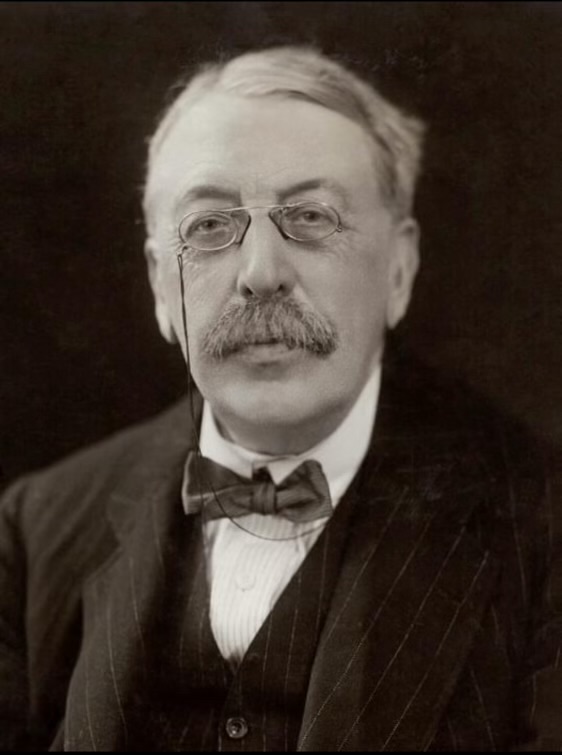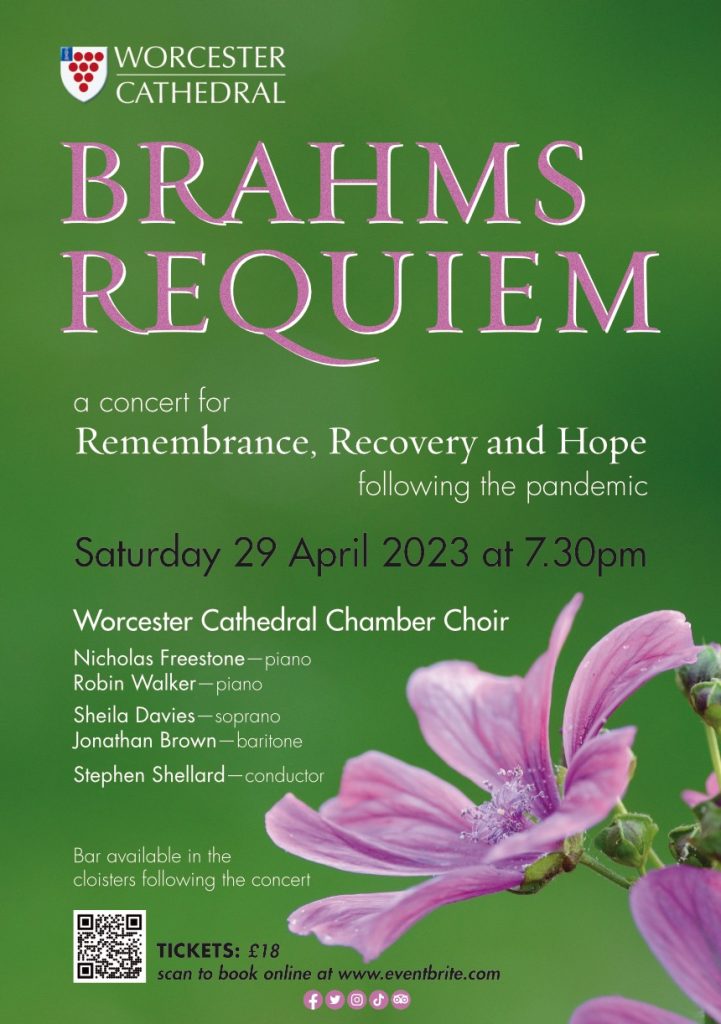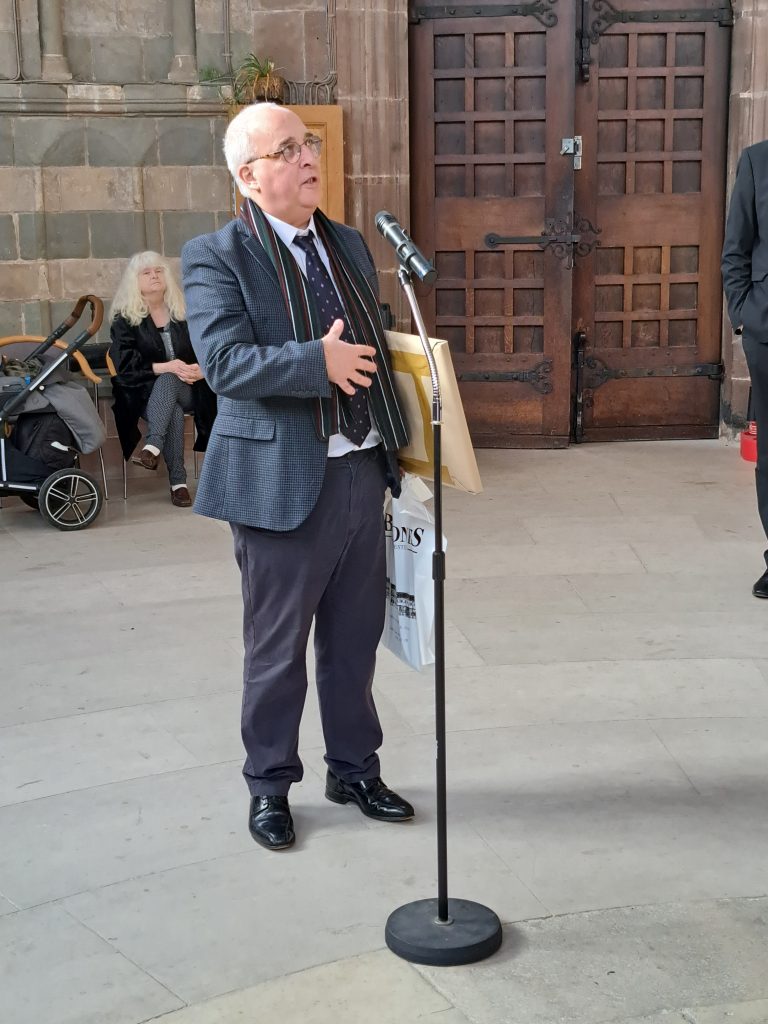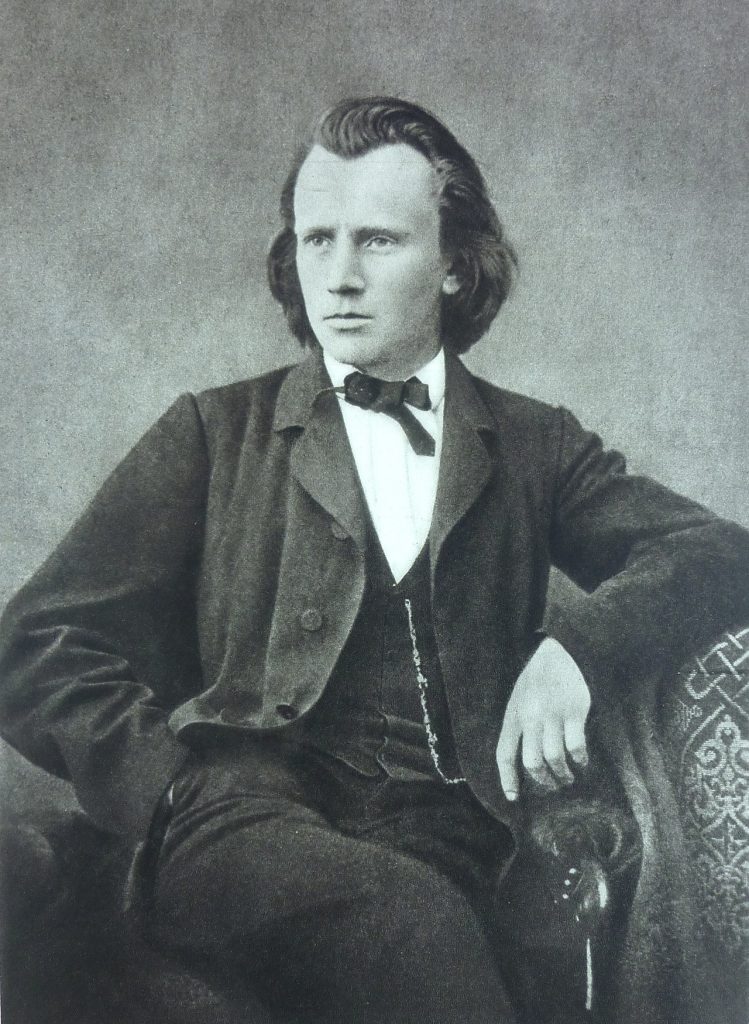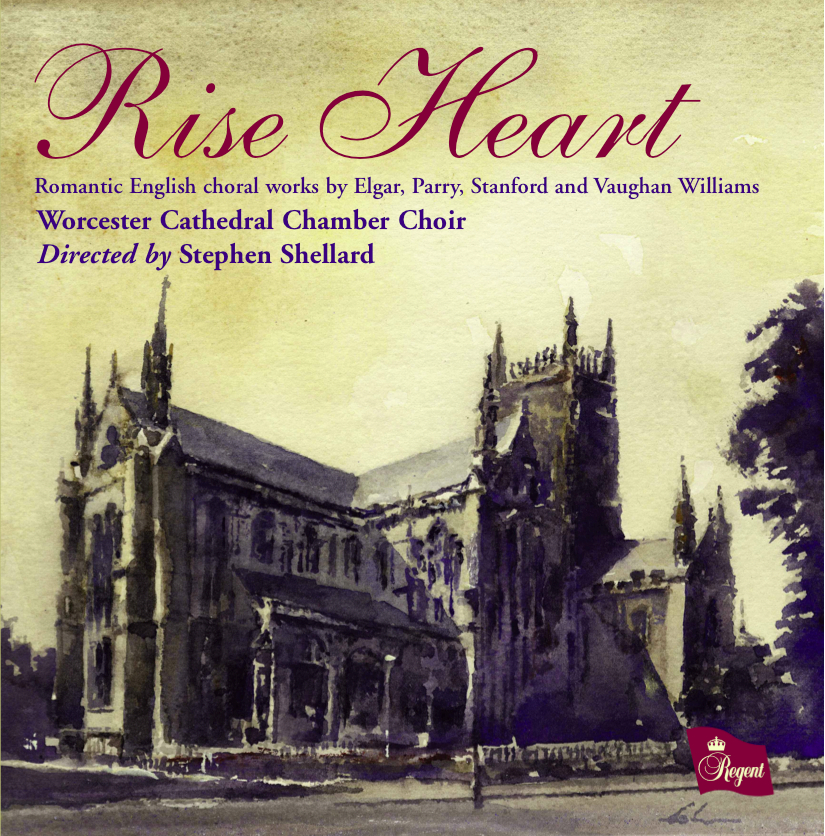Worcester Cathedral Chamber Choir has a long association with the music of Stanford and has included a number of his works on our CD recordings. Our CD Rise Heart, includes a recording of The Blue Bird. To mark the centenary of his death the Chamber Choir will be singing his Evening Canticles in C and two of his anthems (Song of Wisdom and O for a closer walk with God) at Evensong in the cathedral on 16th March. The choir will also be singing his Evening Canticles in A in Westminster Abbey on 15th July.
Charles Villiers Stanford was born in Dublin on 30th September 1852, this son of a Protestant lawyer, and talented cellist. He studied in Dublin and London before being appointed organ scholar at Queens College, Cambridge in 1870. His interest in conducting led him to the appointment as conductor of the Cambridge University Musical Society in 1873. He moved to Trinity College, being appointed organist in 1874; a post which he retained until 1892.
Stanford’s musical studies involved spending the second half of each year (1874-1876) in Germany. In Leipzig with Carl Reinecke then, latterly, in Berlin with Friedrich Keil.
By 1877 his reputation had been established with settings of George Eliot’s The Spanish Gypsy, a number of piano pieces and his first symphony.
In 1883 he was appointed professor of composition at the newly founded Royal College of Music. Four years later succeeded George Macfarren as professor of music at Cambridge.
His ambitions in conducting led him to appointments at the RCM, the London Bach Choir (1886-1902) and the Leeds Philharmonic (1897-1909).
In 1901 Stanford returned to opera writing. Much ado about nothing, although well received, did nothing to revive his declining popularity.
He was knighted in the Coronation Honours of King Edward VII in 1902.
A rivalry between Stanford and Elgar ensued. In 1904 Edward Elgar was appointed professor of music at Birmingham University, Stanford wrote him a letter which the recipient found “odious”.
From the turn of the century until the outbreak of World War I he continued to compose. Works included a violin concerto (1901), a clarinet concerto (1902), settings of Henry Newbolt’s Songs of the Sea and Songs of the Fleet (1904 and 1910), his sixth and seventh (and last) symphonies (1906 and 1911), and his second piano concerto (1911).
The First World War had a severe effect on Stanford, many of his former pupils were casualties (Arthur Bliss, George Butterworth and Ivor Gurney). He was frightened by the air raids so moved to Windsor to avoid them.
After the war Stanford handed over the baton of the RCM Orchestra to Adrian Boult, continuing to teach at the college and give occasional public lectures.
His last public appearance was on 5th March 1921 conducting the Royal Choral Society in his new cantata, At the Abbey Gate. Reviews were polite but unenthusiastic.
In September 1922, two weeks before his 70th birthday he completed his final work, the Sixth Irish Rhapsody, thereafter his health began to decline. He died on 29th March 1924 at his home in London 12 days after suffering a stroke.
His ashes were interred in the North Choir Aisle of Westminster Abbey on 2nd April 1924 near the graves of Henry Purcell, John Blow and William Sterndale Bennett. The music for the service was provided by the orchestra of the RCM, conducted by Adrian Boult.
Although his greatest desire was to write operas, he is chiefly remembered for his substantial output of choral music for the Anglican Church.
Anyone who thinks of Stanford just as a choral composer should take the time to investigate his orchestral output. His seven symphonies, six Irish Rhapsodies, the Cello Concerto, and Concert piece for organ and orchestra are well worth a listen.

